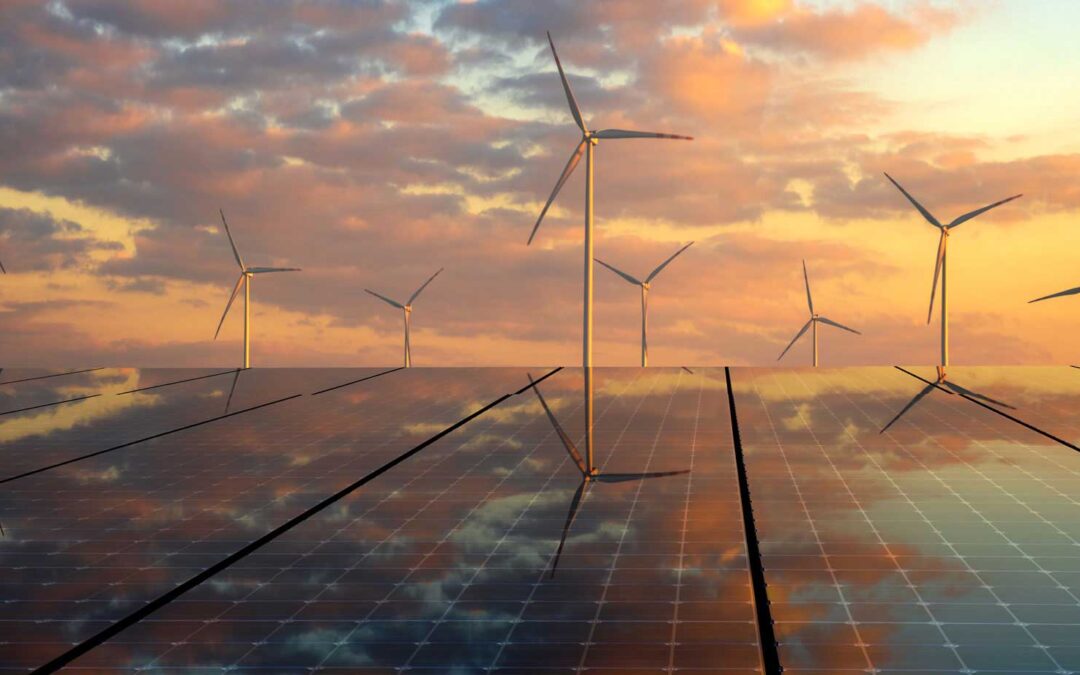
by Michael Vickerman | Aug 19, 2020 | Policy, Public Service Commission, RENEW Wisconsin
In June, the Public Service Commission requested public comments on the latest iteration of its Strategic Energy Assessment (SEA), a study that profiles the state’s electric power industry and surveys how the economic and regulatory landscape will likely evolve over the next six years. The PSC is required by law to update its assessment every two years. The PSC gave the public until August 14th to file comments to the draft study.
In contrast to previous renditions of this process, which were quiet affairs, this year’s draft assessment (Docket 5-ES-110) elicited a veritable torrent of comments from the public. This unprecedented volume of responses reflects a broadening understanding that electric providers are making significant changes to their resource mix to reduce carbon emissions, and that this clean energy transition must continue. With the PSC approving a significant quantity of zero-emission generation in other proceedings, it is heartening to see so many individuals and organizations encouraging the PSC to do more of the same.
Unfortunately, the draft SEA shies away from acknowledging the market realities and environmental constraints that are, today, driving utility procurement decisions quite clearly toward clean energy. This did not go unnoticed. As RENEW noted in its comments, the draft SEA is distinguished more by what is absent from the discussion than by the contents within it.
Chief among the blind spots is the document’s complete silence on climate science and the Governor’s Executive Orders #38 and #52, which enumerated a number of initiatives and goals to put the state on a zero-carbon pathway. Issued in August 2019, Executive Order #38 created a new office within state government, the Office of Sustainability and Clean Energy (OSCE). Over the last nine months, OSCE has been working closely with the Governor’s Task Force on Climate Change, assisting this body in formulating strategies for tackling the effects of climate change in Wisconsin.
OSCE director Maria Redmond submitted comments consisting of recommendations for improving the usefulness and educational value of the SEA.
While reporting on what the utility providers are doing, the PSCW should capitalize on the opportunity to integrate several multi-sector, local, state, and regional efforts to reduce energy consumption, transition to clean energy. The SEA compliments the work of the OSCE and could be a useful tool to measure and verify progress towards meeting our carbon reduction goals. The SEA could also be used to directly address and report on Wisconsin’s progress on reducing the impacts of climate change. As currently written, the assessment does not analyze the overall risks (business as usual) versus the benefits of the transition to a clean energy economy or addressing climate change.
RENEW struck a similar theme in its concluding remarks.
We encourage Commission staff to engage the newly created Office of Sustainability and Clean Energy in a productive way, and find other sources of information beyond the utility responses to data requests. Certainly, RENEW would, if asked, gladly assist Commission staff in the gathering of relevant information prior to the document-drafting process. As noted in the introduction, the Strategic Energy Assessment is the closest thing in the state to a public planning process involving the state’s electric providers. It’s crucially important that this and future iterations of the SEA weave in policy threads that will illuminate pathways to achieving the clean energy goals and objectives that numerous public and private entities in Wisconsin have adopted.
The breadth and volume of comments submitted to the PSC is directly attributable to RENEW’s work to engage stakeholders and the public on the current SEA, highlighted by a webinar organized and led by RENEW policy director Michael Vickerman. The webinar on July 14 presented a primer on the draft SEA, and provided suggested points that could be raised in comments. More than 50 individuals representing numerous organizations in Wisconsin and beyond registered for the webinar. The slide deck prepared for the webinar can be found here.
In 2018, a mere two weeks elapsed between the comment filing deadline and the issuance of the final SEA. This time around, we expect more significant re-writes and additions to the draft.
RENEW thanks the organizations and individuals who weighed in with comments. We are hopeful that the public response to the draft SEA will materialize into needed improvements in the final document.
by Jodi Jean Amble | Aug 11, 2020 | RENEW Wisconsin
RENEW Wisconsin has named Heather Allen as Executive Director. Ms. Allen was hired as RENEW’s Program Director in July 2018 and has been acting as Interim Executive Director since March, when RENEW’s prior Executive Director, Tyler Huebner, was appointed by Governor Tony Evers to the Public Service Commission of Wisconsin.
Prior to joining RENEW Wisconsin, Ms. Allen worked as the Legislative Analyst for the City of Madison’s Common Council. She brings to RENEW a cumulative 15 years of experience developing policies and programs at the Clean Lakes Alliance, Natural Resources Defense Council, National Oceanic and Atmospheric Administration, and the City of Madison.
“With Heather at the helm, RENEW is well-positioned to steer Wisconsin’s clean energy transition on a path towards a broader distribution of its benefits,” said Michael Vickerman, Policy Director at RENEW Wisconsin. “As state and local governments, schools, businesses, farmers, tribes, affinity groups, and individuals become more invested in clean energy, RENEW will be working with them to realize a future in which renewable energy is available and accessible for anyone who desires it.”
“Heather is an ally for solar installers and customers across Wisconsin,” Burke O’Neal at Full Spectrum Solar added. “She is dedicated to improving access to renewable energy for homeowners, businesses, local governments and nonprofit organizations.”
“I’m thrilled to congratulate Heather Allen on becoming Executive Director of RENEW Wisconsin,” said Deb Erwin, Manager, Regulatory Policy, Xcel Energy. “As a national leader in the clean energy transition, Xcel Energy knows the importance of working together with partners to make our vision a reality. We look forward to working with Heather to bring all the benefits of the clean energy transition to Wisconsin.”
Eric Udelhofen, RENEW Wisconsin Board of Directors Chair and Project Developer at OneEnergy Renewables, a RENEW business member added, “The RENEW Board is thrilled that Heather Allen has accepted the offer to become our new Executive Director, and is very excited to continue working together with Heather to advance RENEW’s mission of advancing renewable energy in Wisconsin. Heather is a fierce advocate for our issues and will be able to step in and be an effective advocate and leader from day one.”
Ms. Allen said, “As we look ahead to the next five years, there is so much opportunity for clean energy. Price drops in wind and solar and public interest in generating clean emission-free electricity have paved the way for growth and innovation in new technologies. Electric vehicles, batteries, and demand response solutions are reshaping the energy landscape to allow for a more responsive, sustainable, and affordable grid.”
“We are committed to increasing equitable access to the benefits of renewable energy so that all Wisconsinites have a clear stake in our energy system. I envision a future in which Wisconsin becomes a renewable energy leader and a model for other states.” She added, “This is the moment to seize the opportunity to shift towards renewable energy, keep billions of dollars in Wisconsin, and reinvest in our local economies.”
Ms. Allen is the producer and host of Wisconsin Energy Broadcast (WEB) on WORT 89.9 FM, a monthly broadcast, where she discusses clean technology and renewable energy in the Midwest.
Ms. Allen received a Bachelor of Science in Biological Aspects of Conservation and International Relations from the University of Wisconsin – Madison and Master of Arts in International Environmental Policy from Middlebury Institute of International Studies.
Other advocates and industry professionals also expressed their congratulations on Ms. Allen’s appointment:
It is always a pleasure to work with Heather. Her gift is being able to draw in people with many different perspectives and experiences. She continues to expand the coalition of allies who can advocate effectively for clean energy in Wisconsin.
Jennifer Giegerich, Government Affairs Director, Wisconsin Conservation Voters
Heather Allen’s understanding of the multifaceted challenge of climate change mitigation clearly drives her dedication to achieve climate justice. As a physician advocating for the health of my patients via equitable climate change mitigation and adaptation solutions, I have found Heather’s expert understanding of large-scale renewable infrastructure development to be invaluable. Heather has also always been a pleasure to work with, demonstrating unparalleled passion, prompt and professional communication and collaboration skills, and an enduring work ethic. I am thrilled to hear of her permanent appointment as Executive Director of RENEW Wisconsin.
Andrew Lewandowski, Pediatrician, GHC-SCW, Steering Committee Member, Wisconsin Environmental Health Network
Heather has been a delight to work with as Wisconsin Interfaith Power & Light has collaborated with RENEW through her to bring a message of Good News to people of faith who care about sustainable energy.
John Helt, Former Board President, WI IP&L
I’ve been fortunate to work with Heather Allen for more than four years now and I know that she’ll be an outstanding Executive Director for RENEW. Heather is smart, diligent, responsible, hardworking, a great communicator, and has so much integrity! Congrats to RENEW on a great hire and a bright future.
Keith Reopelle, Former Director of Dane County’s Office of Energy and Climate Change
Excellent choice, Renew Wisconsin continues Forward in very capable dedicated hands! Congratulations Heather!
Bob Bishop, Farmer
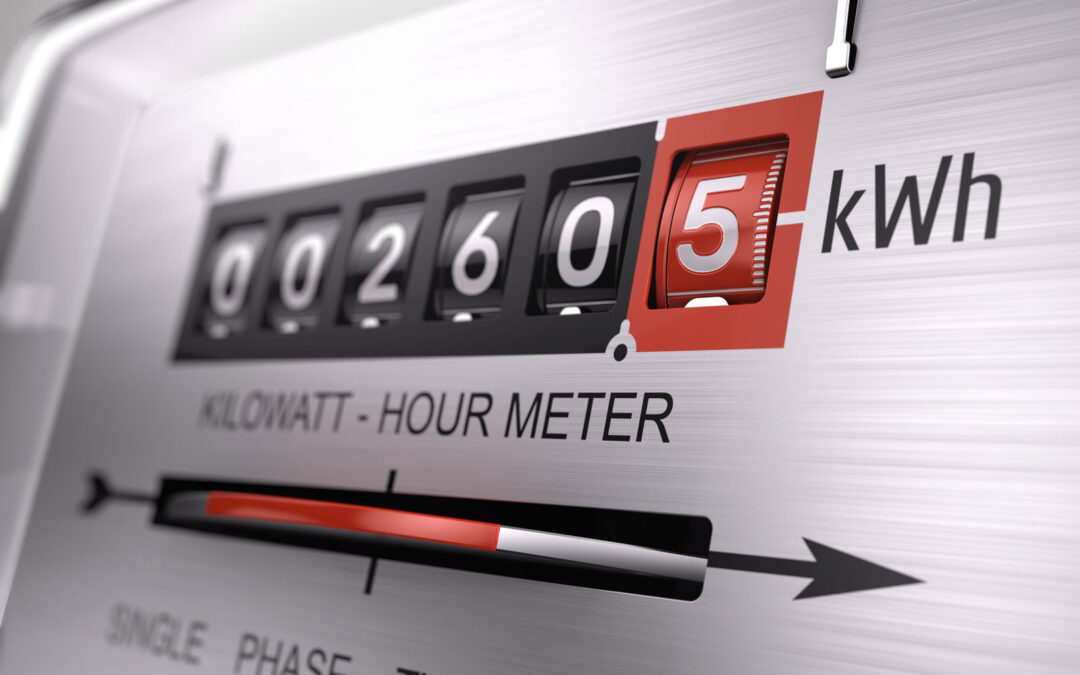
by Heather Allen | Jul 21, 2020 | Advocacy, Policy, RENEW Wisconsin, Renewables, Solar, Utilities
Last week the Federal Energy Regulatory Commission (FERC) dismissed a challenge to state control of net metering. The unanimous decision made on Thursday, July 16, 2020 was great news for RENEW Wisconsin and our members. Homeowners, business and manufacturers that generate their own solar energy can now breathe easy, knowing that the oversight for net metering policy remains in the hands of Wisconsin’s own Public Service Commission.
The New England Ratepayers Association (“NERA”) had petitioned the FERC to take control over net metering policy for the entire country. If the petition were granted, states would have lost the ability to set policy on solar electricity generated by utility customers. The challenge to state control of net metering, the policy that enables energy producers to get bill credit for the extra energy they push back on to the grid, threatened the solar investments of thousands of families and businesses in Wisconsin.
RENEW joined dozens of other clean energy advocacy organizations in a petition to dismiss the issue and encouraged Wisconsin’s political leadership to get involved. Many elected officials from around the country joined in the fight to protect net metering including Wisconsin’s own, Attorney General Josh Kaul.
Check out the background on this story and how RENEW fought to protect Wisconsinites generating clean energy on their homes and businesses.
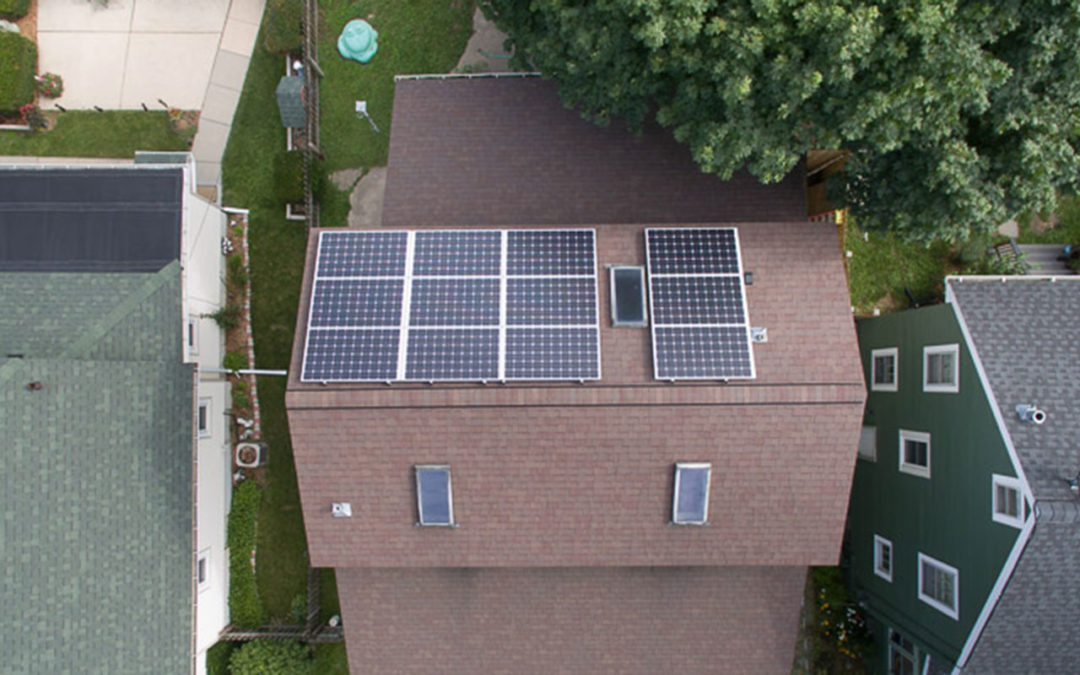
by Heather Allen | Jun 29, 2020 | Policy, RENEW Wisconsin, Solar, Utilities
An upcoming decision by the Federal Energy Regulatory Commission (FERC) has the solar industry, legislators, clean energy advocates, and state regulators extremely worried over the viability of solar power for homeowners and businesses.
The New England Ratepayers Association (“NERA”) has petitioned the FERC to take control over net metering policy for the entire country. If the petition is granted, states would lose the ability to set policy on solar electricity generated by utility customers. NERA’s petition has sparked widespread opposition from states, legislators, individuals and renewable energy businesses. Attorney Generals from 15 states, including Wisconsin’s own Attorney General Josh Kaul, submitted a protest in opposition to the petition.
What inspired 15 attorney generals, three governors, and state officials from across the political spectrum to engage in a federal energy policy debate?
For almost 40 years, states have had the authority to design and implement net metering policies. The NERA petition aims to reverse this long-standing precedent and eliminate Wisconsin’s ability to tailor utility net metering services to best fit local conditions.
What is net metering?
As defined by the Solar Energy Industries Association, net metering is a billing mechanism that credits PV system owners for the electricity they add to the grid. For example, if a residential customer has a rooftop PV system, it may generate more electricity than the home uses during daylight hours. If the home is net-metered, the electricity meter will run backwards to provide a credit against what electricity is consumed at night or other periods when the home’s electricity use exceeds the system’s output. The credit is set at the customer’s retail energy rate. Under this arrangement, customers are only billed for their “net” energy use. This practice enables utility customers who are producing their own electricity to decrease their electricity bills, and it is a powerful tool for driving investment in solar power.
What is at stake here?
According to the U.S. Energy Information Administration, Wisconsin has 3,879 residential net metering households, 874 commercial net metering customers, and 74 industrial net metering customers. These customers are at risk of increased electric bills with the potential loss of net metering.
In addition, the 2019 jobs data from Clean Energy Trust found that before the pandemic hit, Wisconsin employed over 3,798 solar installers as part of the statewide clean energy workforce. With less financial incentive for installing solar, these jobs and other clean energy jobs would be at risk if this petition is granted.
Net metering is good for everyone
RENEW Wisconsin joined other organizations in protesting this petition to wrest control of net metering away from states and put it in the hands of a federal agency. Our protest, authored by attorneys Dave Bender and Carter Hall of Earthjustice with clients Sierra Club and Vote Solar, includes explanations of the value of net metering policies for the electric grid. Here are some essential excerpts from the protest:
- Net metered facilities (such as solar) provide capacity value by avoiding otherwise required generation, transmission and distribution capacity.
- With net metering, solar has become an affordable option for almost everyone, not just high-wealth families. Net metering supports the increased use of distributed solar (such as solar arrays on the rooftop of a house or business), stimulating investment across communities while reducing the environmental and health impacts on low income communities and communities of color, who are disproportionately burdened by current forms of energy production.
- Solar installers operate in a competitive marketplace, driving down prices and passing savings onto consumers.
- Distributed solar has predictable energy production.
- Allegations of cross-subsidies are unfounded and overstated. Net metered customers often reduce their own loads and system loads during the cost-causing peak hours used to allocate costs of retail service, meaning they consume less of the fixed and demand services as measured by cost of service analysis.
Strong bipartisan support for state control of net metering
Millions of individual citizens and businesses across the country have made significant investments to generate their own electricity and have entered long-term contracts premised on the continuation of policies and programs regulated at the state level. Granting the petition would create enormous uncertainty and financial harm for our citizens and businesses at a time when they are already struggling with the economic impacts of the coronavirus.
More than 240 comments in opposition have been submitted to the FERC, and just five comments in support of taking away state control of net metering. Here are a few highlights:
Josh Kaul, Attorney General of Wisconsin said,
“Suddenly changing the rules on Wisconsinites who invested in clean energy for their homes is wrong and bad for the future of clean energy,” said AG Kaul. “The federal government shouldn’t be disrupting state programs that are good for the environment and help consumers save money.” 6/15/20
Frank Knapp Jr. CEO and President of South Carolina Small Business Chamber of Commerce said,
“…Net metering regulation properly resides with the states… We ask that the Commission reject the NERA petition. Moving it forward only serves the purpose of big special interests that find it easier to influence one group of federal commissioners rather than legislators, regulators and consumers in 50 individual states.” 6/11/20
Terry Kilgore, Virginia State Delegate (R-VA-1) wrote,
“This case would set two bad precedents. It would move us closer to nationalized electricity regulation and give more power to unaccountable federal bureaucrats. We, as Virginians, must oppose this and fight to make sure the authority to set energy policy stays vested with Virginia’s General Assembly.” 6/20/20
Net metering is in jeopardy. The petition, if approved, would take the state out of the picture in designing and preserving net metering as we know it. You can count on RENEW to keep working to ensure that net metering policies remain in the hands of our state regulators and are designed to fairly compensate residents and business that have installed renewable energy.
Make a donation today to support this work and all of the ways RENEW Wisconsin is protecting and advancing renewable energy in Wisconsin.
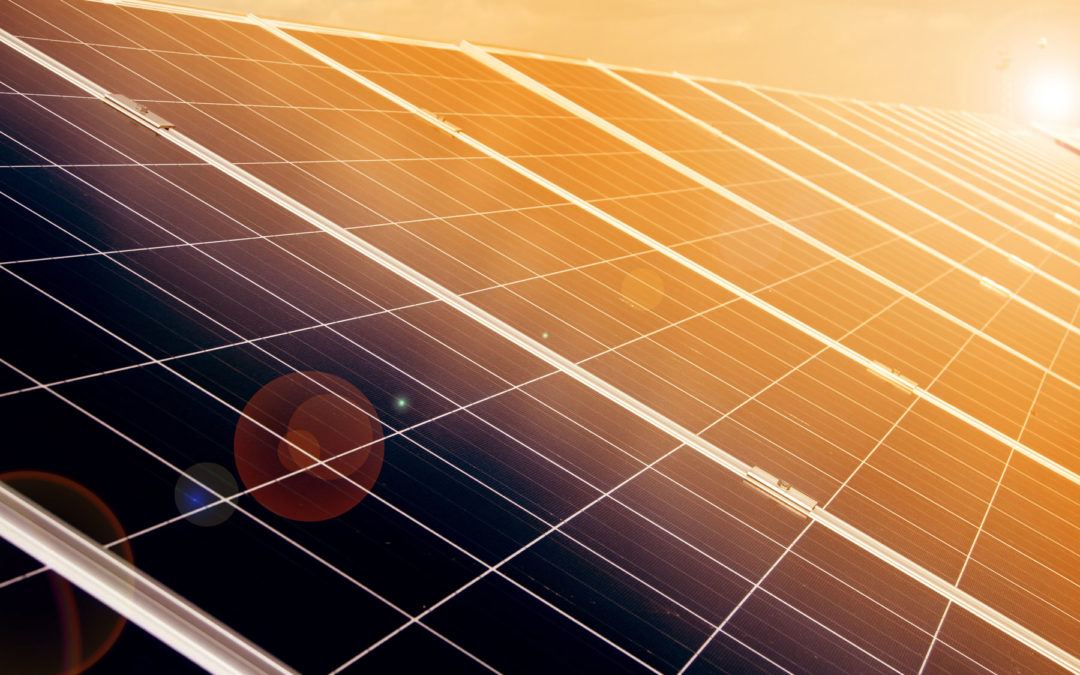
by Jodi Jean Amble | Apr 16, 2020 | RENEW Wisconsin, Solar
Press release from Solar Energy Industries Association (SEIA)
WASHINGTON, D.C. and MADISON, Wis. – The Solar Energy Industries Association (SEIA), the national trade association for the U.S. solar energy industry, announced today that RENEW Wisconsin is now a formal SEIA state affiliate.
RENEW Wisconsin becomes the 18th SEIA state affiliate.
“We are thrilled to welcome RENEW Wisconsin to our network and we look forward to collaborating on policy efforts that get the state’s solar market moving again,” said Abigail Ross Hopper, president and CEO of SEIA. “As we work toward recovery from COVID-19, Wisconsin has the potential to become a regional solar leader and generate thousands of new jobs for hard-working people in the state.”
Today, Wisconsin is ranked 34th nationally with 209 megawatts of installed solar electric generating capacity. There are nearly 3,000 solar jobs in the state and those jobs are at risk as a result of the global pandemic.
“RENEW Wisconsin is excited to build our network as a new SEIA Affiliate,” said Heather Allen, Interim Executive Director of RENEW Wisconsin. “Our SEIA partners around the country are an invaluable resource as we protect renewable energy now and find opportunities to advance renewable energy in Wisconsin when this health crisis is over. Investments in solar power will keep vital dollars and family-sustaining jobs in our communities, and offer cleaner, healthier air for all of Wisconsin.”
RENEW Wisconsin is a nonprofit organization that promotes renewable energy in Wisconsin. The group works on policies and programs that expand solar power, wind power, biogas, local hydropower, geothermal energy and electric vehicles. Since 1991 RENEW Wisconsin has been a champion for clean energy solutions in the Badger State.
SEIA has developed strategic partnerships with numerous state and regional advocacy non-profits, known as SEIA Affiliates. These organizations have demonstrated leadership on policy and regulatory matters, actively engaged with the solar industry in their respective territories and offered grassroots support for SEIA’s federal campaigns, among other accomplishments. We are proud to call them our partners in growing the U.S. solar industry.
To see a map of the current SEIA affiliates across the country, visit www.seia.org/affiliates.
###
About SEIA®:
The Solar Energy Industries Association® (SEIA) is leading the transformation to a clean energy economy, creating the framework for solar to achieve 20% of U.S. electricity generation by 2030. SEIA works with its 1,000 member companies and other strategic partners to fight for policies that create jobs in every community and shape fair market rules that promote competition and the growth of reliable, low-cost solar power. Founded in 1974, SEIA is a national trade association building a comprehensive vision for the Solar+ Decade through research, education and advocacy. Visit SEIA online at www.seia.org.
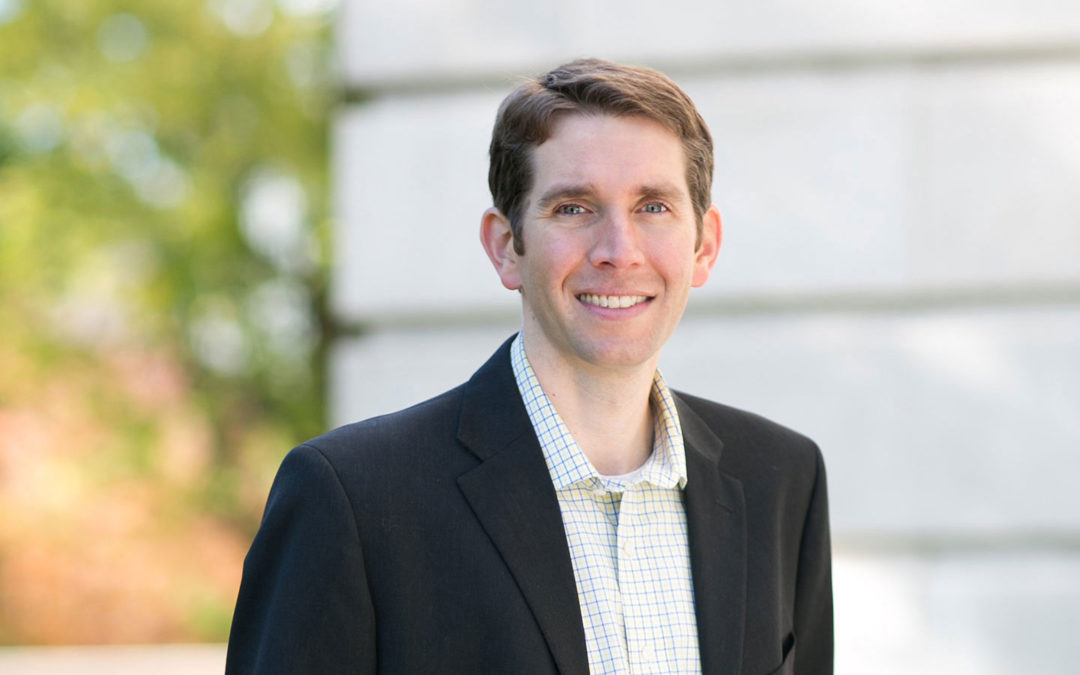
by Tyler Huebner | Mar 16, 2020 | Public Service Commission, RENEW Wisconsin
Dear RENEW Wisconsin Members and Supporters,
First and foremost, I wish you, your families, and everyone well during this unprecedented time regarding the novel coronavirus and COVID-19. I urge you to continue following the ever-changing guidelines coming from the Center for Disease Control and your elected officials at all levels to help keep each other safe.
With that said, last week Governor Tony Evers appointed me to be the next Commissioner at the Public Service Commission of Wisconsin.
With this change, I will be leaving RENEW Wisconsin, and my last day is today. I started with RENEW in June of 2013, and I want to thank you all for your support of the organization, and of me, since then.
It has been extremely rewarding to be the Executive Director of this organization, and I feel very proud of the organization’s growth and successes during my period here.
Heather Allen will be the organization’s Interim Executive Director starting immediately. Heather has been with the organization for nearly two years, and she will do an excellent job advancing its mission and priorities going forward. You can reach her at heather@renewwisconsin.org or 608-255-4044 extension 1.
In addition to Heather, the rest of the RENEW staff is here to support you however they can.
Thank you, again, for the opportunity to serve this organization and all of you in this role. It has been a distinct pleasure!
Sincerely,
Tyler Huebner





